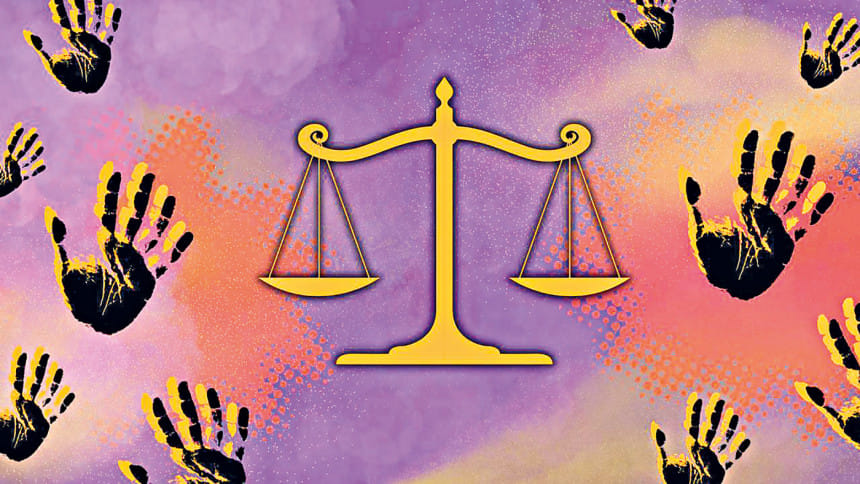Addressing the root causes of violence against women

The Constitution of the People's Republic of Bangladesh enshrines the principles of freedom, justice, and equality, affirming that all individuals are equal before the law and entitled to equal protection under it. Furthermore, the Constitution upholds the principle of non-discrimination, with a specific commitment to ensuring gender equality. Thus, the country's core objective is to establish a society free from exploitation, where the rule of law, fundamental human rights, and political, economic, and social equity are guaranteed for all citizens.
Despite the constitutional commitment and the existence of numerous laws aimed at combating discrimination and violence against women, incidents of such violence in Bangladesh continue to rise at an alarming rate. Ain o Salish Kendra's (ASK) most recent data reveals alarming statistics about the prevalence of violence against women in Bangladesh. Between January and September 2023, 158 women were murdered as a result of violence. According to the non-governmental organisation Light House, a staggering 9,764 women fell victim to violence over a one-year period. This figure includes 4,360 cases of rape and 450 murders following rape. In total, 17,027 incidents of violence against women were reported during this period. These figures not only underscore the urgent need for stronger enforcement of existing laws but also highlight the deeply entrenched societal issues contributing to the patterns of violence. This piece aims to highlight that, in addition to legal shortcomings, there are several other critical factors that contribute to the persistence of violence against women, a grave violation of human rights which need to be addressed.
One of the most significant contributors is the social norms and cultural attitudes that perpetuate gender inequality. These traditional beliefs often position women as subordinate to men, fostering an environment where violence is normalised or even justified. Social norms that promote male dominance and control over women such as those linked to dowry practices, the expectation of women's submission, and the tolerance of domestic abuse create a backdrop in which violence against women is not only accepted but, in some cases, expected. In Bangladesh, the financial dependency of women on men and the social perception of male superiority contribute significantly to the prevalence of violence against women too. These cultural and economic factors create an environment in which women's rights and safety are continually undermined, even in the face of stringent laws. Thus, while legal reform is important, it is equally crucial to address these underlying societal issues. Comprehensive measures that challenge patriarchal structures, promote gender equality, and empower women economically and socially are essential for reducing violence and ensuring that legal protections are not only theoretical but also practically effective.
Education plays a crucial role in shaping attitudes. Teaching children from a young age about mutual respect, equality, and non-violence is essential to breaking the cycle of intergenerational abuse. Schools should incorporate programs on healthy relationships, gender equality, and conflict resolution, equipping future generations with the knowledge and skills to promote respect and prevent violence. To ensure the effective prevention and response to violence, local monitoring bodies should be established in each union or district. These bodies would be responsible for receiving complaints, providing support to victims, and ensuring that perpetrators are held accountable. They should have the authority to initiate investigations and take action to address complaints, ensuring that no act of violence goes unaccounted for. The government, civil society organisations, and communities must work together to address both the symptoms and root causes of gender-based violence.
A major cause underlying gender-based violence is gender-based discrimination. In this context, it is important for us to discuss anew the draft Anti-Discrimination Act 2022.
The bill's reactive nature was underscored by experts as one of its main problems. The usefulness of the law in preventing discrimination in the first place was evidently limited because it intended to take effect only after a discriminatory act has taken place. The draft did not deal with the underlying causes of discrimination or take preventive steps to stop it. The bill thus ran the risk of being only a cosmetic tool given the underlying structural and societal problems remained unaddressed. This is high time we enacted an effective law to prevent discrimination which would eventually help effectively combat violence against women in Bangladesh.
The writers are Associate Professor and Head, Department of Law, American International University-Bangladesh and Lecturer, Department of Law, American International University-Bangladesh, respectively.

 For all latest news, follow The Daily Star's Google News channel.
For all latest news, follow The Daily Star's Google News channel. 



Comments